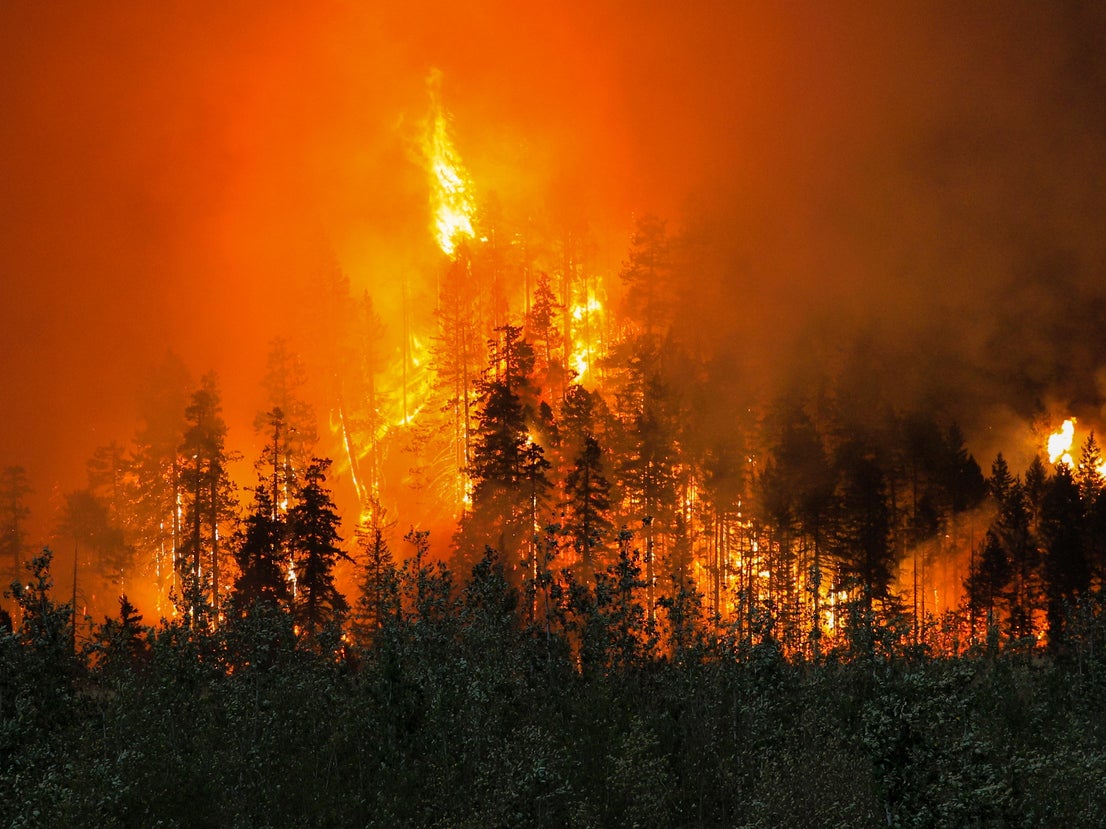Climate crisis: US ‘on path to extreme heat’ in coming decades if emissions aren’t reduced, study says
Only mountainous regions will remain extreme heat refuges in 80 years if current emissions levels continue, scientists warn

Your support helps us to tell the story
From reproductive rights to climate change to Big Tech, The Independent is on the ground when the story is developing. Whether it's investigating the financials of Elon Musk's pro-Trump PAC or producing our latest documentary, 'The A Word', which shines a light on the American women fighting for reproductive rights, we know how important it is to parse out the facts from the messaging.
At such a critical moment in US history, we need reporters on the ground. Your donation allows us to keep sending journalists to speak to both sides of the story.
The Independent is trusted by Americans across the entire political spectrum. And unlike many other quality news outlets, we choose not to lock Americans out of our reporting and analysis with paywalls. We believe quality journalism should be available to everyone, paid for by those who can afford it.
Your support makes all the difference.Widespread "increases in extreme heat” due to climate change could bring unprecedented risks to the US in coming decades, a new study has warned.
By 2050, hundreds of American cities could experience an entire month each year with US "heat index" temperatures above 100F (38C) if nothing is done to tackle emissions and the resultant climate crisis, scientists said.
In the US, the National Weather Service heat index scale starts topping out above temperatures of 127F (52C), depending on the combination of temperature and humidity.
Few places would be unaffected by extreme heat conditions by 2050 and only a few mountainous regions would remain extreme heat refuges by the century’s end, the team from the Union of Concerned Scientists said.
They said this failure to reduce emissions could set the country on a path to soaring temperatures including conditions so far in excess of current climate trends they will surpass the heat index.
This is a measure of how hot it feels when humidity is factored in with the air temperature, providing a number on a coloured scale, starting with 80F (26C) which is yellow – caution, and rising through dark yellow beginning at 91F (33C) – extreme caution, orange at 103F (39.5C) – danger, and up to red beginning at 126F (52C) – extreme danger.
The average number of days per year nationwide with a heat index above 105 degrees Fahrenheit would more than quadruple to 24 by mid-century and increase eight-fold to 40 by late century, the analysis, published in the journal Environmental Research Communications, revealed.
Such “off-the-charts” conditions could pose unprecedented health risks, the Union of Concerned Scientists said.
“Our analysis shows a hotter future that’s hard to imagine today,” the study's co-author Kristina Dahl, a climate scientist at the Union of Concerned Scientists, told the USA Today newspaper.
“Nearly everywhere, people will experience more days of dangerous heat in the next few decades.”
The work is the first study to examine the impacts of climate change on the heat index – instead of just temperature – when calculating the impacts of warming, Dr Dahl said.
“We have little to no experience with ‘off-the-charts’ heat in the US,” said Erika Spanger-Siegfried, co-author of the report and lead climate analyst at the Union of Concerned Scientists.
“These conditions occur at or above a heat index of 127 degrees, depending on temperature and humidity. Exposure to conditions in that range makes it difficult for human bodies to cool themselves and could be deadly,” she added.
Join our commenting forum
Join thought-provoking conversations, follow other Independent readers and see their replies
Comments